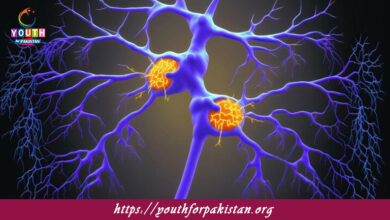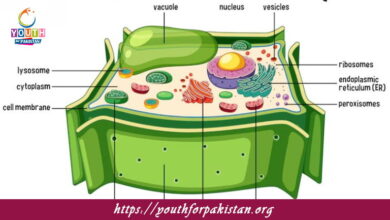Multiple Alleles MDCAT Quiz with Answers

Multiple Alleles MDCAT Quiz; The term multiple alleles refers to the existence of more than two allelic forms for a particular gene. Though Mendel’s experiments worked with genes that had only two alleles (one dominant and one recessive), many genes have more than two possible alleles in a population. The ABO blood group system in humans is one example; three alleles—A, B, and O—determine blood type. Inheritance with multiple alleles is an important concept for MDCAT students because it expands the basic Mendelian inheritance to explain more complex genetic scenarios. The MDCAT Quiz on multiple alleles will test your understanding of how these alleles interact and how they influence genetic inheritance.
Multiple Alleles and Blood Group Inheritance
One of the best examples of multiple alleles in humans is the ABO blood group system. Three alleles, A, B, and O, control this system. A and B alleles are dominant over O, but A and B are co-dominant to each other. Thus, the individual having the genotype AA or AO will have the blood group A; the individual having genotype BB or BO will have blood group B; the individual having genotype AB will have the blood group AB, and an individual having the genotype OO will have the blood group O. Inheritance of these alleles follows Mendelian principles but with multiple alleles’ added complexity, and phenotypic ratio depends on the combination of alleles from parents. The MDCAT Quiz will test your ability to predict blood types based on the inheritance of these multiple alleles.
Co-dominance and Incomplete Dominance
In the case of multiple alleles, the relationship between alleles may vary. When both alleles of a heterozygous individual are fully expressed, this is known as co-dominance; an example of this is seen in the ABO blood group system. On the other hand, incomplete dominance is observed when neither allele is completely dominant, and the heterozygous phenotype lies somewhere between the two homozygous phenotypes. For instance, the inheritance of flower color, where a cross between a red-flowered plant (RR) and a white-flowered plant (WW) may result in pink-flowered offspring (RW) if the alleles for red and white are incompletely dominant. The MDCAT Quiz will test your knowledge of these inheritance patterns and how they relate to multiple alleles.
Genetic Calculation with Multiple Alleles
When dealing with more than one allele, genetic calculations become more complicated, since there are more possible combinations of alleles in the offspring. For instance, in a cross between two individuals with different blood types, you have to account for the possible combinations of genotypes and how they combine to produce offspring with different blood types. Similarly, when you study other traits controlled by multiple alleles, such as the coat color in animals or eye color in humans, you will have to calculate the probability of different genotypes and phenotypes. The MDCAT Quiz will challenge you to apply your knowledge from multiple alleles in order to solve genetic problems and predict the patterns of inheritance for traits that involve more than two alleles.
Multiple Alleles and Population Genetics
In populations, the frequency of multiple alleles may change over time due to natural selection, genetic drift, and gene flow. The knowledge of how multiple alleles contribute to genetic diversity within a population is very important in the study of evolution and population genetics. For instance, the maintenance of multiple alleles in a population can contribute to increasing genetic variation and adaptability to changing environments. The MDCAT Quiz will also test your ability in analyzing population genetic data and understanding how multiple alleles contribute to the genetic diversity of populations.
Multiple Alleles Quiz
Taking an MDCAT Quiz on multiple alleles will enable you to test your knowledge of this complex concept and its role in inheritance. The quiz will focus on genetic problems involving multiple alleles, such as predicting blood types, understanding co-dominance and incomplete dominance, and applying multiple alleles in genetic calculations. Moreover, using Free Flashcards will solidify these key concepts and ensure that you are fully prepared for your MDCAT exam, especially in questions related to the inheritance of traits controlled by multiple alleles.

A cross between a heterozygous blood type A person and a homozygous blood type B person can produce _______.

The inheritance of multiple alleles in the ABO blood group results in a total of _______ phenotypes.

In a cross between a person with blood type A and a person with blood type B, the possible offspring genotypes are _______.

The probability of a child inheriting blood type A from two parents with blood type A and B, respectively, is _______.

If one parent is homozygous blood type A and the other parent is homozygous blood type B, their children could inherit blood types _______.
Experience the real exam environment with our expertly designed collection of over 25,000 MCQs MDCAT Mock Tests.





